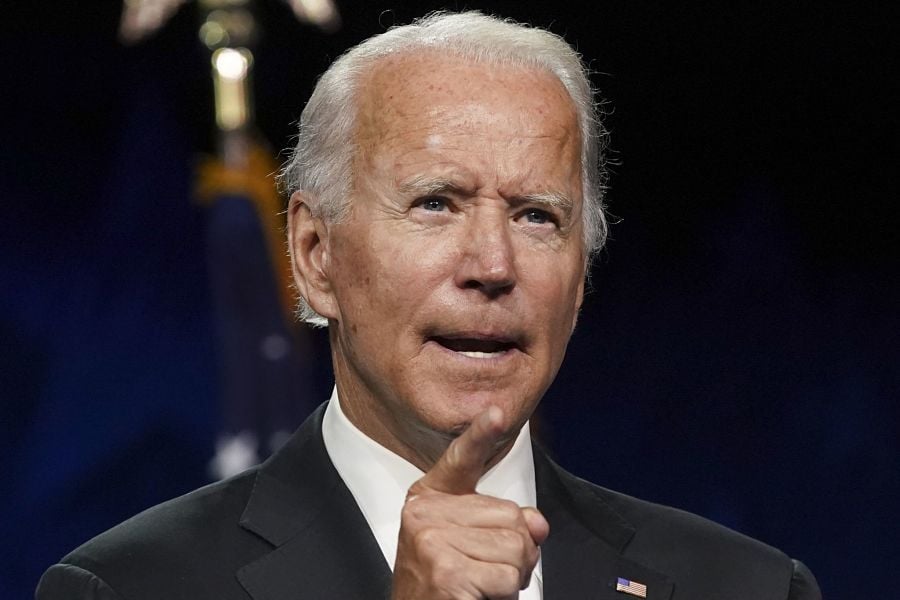

President Joe Biden will propose increasing the minimum tax rates paid by major US and multinational corporations to 21% and eliminating breaks for companies with high-paid executives in his election-year State of the Union address on Thursday night.
The proposal, outlined by White House officials on condition of anonymity, would affect corporations valued at $1 billion or more, raising their minimum tax rate from the 15% level implemented earlier in his term.
Biden will also ask lawmakers — as he did in last year’s budget request — to impose the 21% minimum on multinational corporations, which the White House says would result in substantial new taxes on pharmaceutical companies. He also wants to quadruple the tax companies must pay when they buy back their own stock to 4% from 1%. Democrats have proposed buyback taxes as a way to encourage companies to invest in workforces and equipment over share repurchases.
The package is part of a Biden effort to draw a contrast with the presumptive Republican nominee, former President Donald Trump, whose signature legislative accomplishment saw substantial tax cuts for the wealthy and corporations. Much of that legislation is set to expire at the end of 2025, putting the battle over the tax code at the forefront of the coming election.
Republicans and some moderate Democrats have repeatedly voted down Biden calls to expand corporate taxes. He has previously suggested raising the corporate tax rate to 28% from 21%, a call he plans to make again Thursday.
Actual changes to the code are far off. Lawmakers are unlikely to even consider significant changes until next year, after the elections.
Biden is also requesting that Congress pass a law reducing tax deductions for any company that pays an employee more than $1 million, a move the White House estimates could raise an estimated $270 billion in revenue over 10 years. Current rules restrict eligible deductions for employee compensation to the chief executive officer, chief financial officer and other select positions. He would also minimize tax benefits for private jet travel.
Biden would ask lawmakers to target the ultra-wealthy with a call for a 25% minimum tax on billionaires. It’s designed to prevent the wealthiest Americans from using code provisions to defer or minimize their taxes. The idea is a political long shot but popular with progressive activists, making it a rallying cry for the Democratic base.
The proposals serve important political purposes.
Biden is able to bank the hypothetical revenue in his annual budget proposal, to be released on Monday, reducing the projected impact on the deficit. His budget proposal estimates reducing the deficit by $3 trillion over 10 years, according to the officials.
The proposals also help frame both the upcoming campaign and the future debate over taxes. Because large swaths of Trump’s 2017 tax cuts are set to expire at the end of 2025, lawmakers are incentivized to strike a deal. Failure to do so would mean that nearly every household would see their taxes increase.
But targeting corporate taxes remains politically popular. More than two-thirds of Americans think that corporations pay too little in taxes, according to Gallup.
“While the president wants to cut taxes for working families, congressional Republicans want to cut taxes even more for the wealthy and big corporations,” White House economist Lael Brainard told reporters. “President Biden has made clear whose side he’s on.”
If Biden wins a second term, he will face intense pressure to keep some of his predecessor’s tax cuts in place, including lower rates for middle-income households, a bigger child tax credit and changes that made it easier for many Americans to file with the Internal Revenue Service. That means key portions of Trump’s tax cut could live on even without Trump.
Yet if Democrats control both Congress and the White House, they’re likely to use Biden’s proposals as a starting point for negotiations. And Biden, if he wins reelection, will have one key advantage he didn’t have when Democrats last had full control of Washington: he won’t have to contend with Sen. Joe Manchin of West Virginia, a moderate Democrat, and Sen. Kyrsten Sinema of Arizona, a Democrat-turned-independent, who blocked many of his proposed tax changes. The two do not plan to run for reelection.
If Democrats and Republicans split power in Washington after the election, it’s likely that most of the Trump-era cuts will stay intact, with some small changes subject to bipartisan approval.
Trump has pledged the “biggest tax cuts” if he is elected, though he has privately told allies he prefers to keep the corporate tax rate at 21%, instead of lowering it to 15%, a rate he pushed in office which generated opposition from both parties.

A new proposal could end the ban on promoting client reviews in states like California and Connecticut, giving state-registered advisors a level playing field with their SEC-registered peers.

Morningstar research data show improved retirement trajectories for self-directors and allocators placed in managed accounts.

Some in the industry say that more UBS financial advisors this year will be heading for the exits.

The Wall Street giant has blasted data middlemen as digital freeloaders, but tech firms and consumer advocates are pushing back.

Research reveals a 4% year-on-year increase in expenses that one in five Americans, including one-quarter of Gen Xers, say they have not planned for.
Orion's Tom Wilson on delivering coordinated, high-touch service in a world where returns alone no longer set you apart.
Barely a decade old, registered index-linked annuities have quickly surged in popularity, thanks to their unique blend of protection and growth potential—an appealing option for investors looking to chart a steadier course through today's choppy market waters, says Myles Lambert, Brighthouse Financial.
